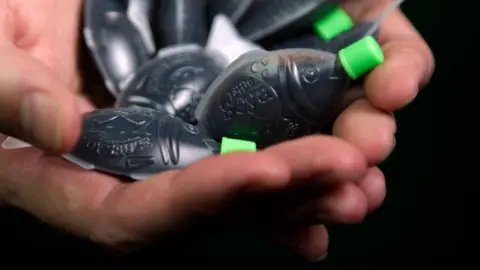A newfound respect for zooplankton is emerging as scientists uncover the vital role these small marine creatures play in mitigating climate change. These organisms, often overlooked in the shadow of more prominent Antarctic species, are capable of storing significant amounts of carbon through a remarkable seasonal migration process.
According to a recent study led by Dr. Guang Yang from the Chinese Academy of Sciences, zooplankton—specifically copepods, krill, and salps—act as a "biological pump." They gorge on phytoplankton in spring, accumulating fat which they eventually burn as they dive hundreds of meters down into the Southern Ocean. This natural process locks away carbon dioxide that would otherwise contribute to global warming, with the researchers estimating that this mechanism sequesters an amount of carbon equivalent to the emissions produced by approximately 55 million petrol cars each year.
This revelation is both impressive and alarming. While scientists had previously acknowledged that zooplankton contribute to carbon storage, the extent of this contribution was not fully appreciated. The latest research underscores that the Southern Ocean accounts for about 40% of global oceanic carbon absorption, largely thanks to these tiny creatures.
Zooplankton, particularly the copepod, exhibits fascinating biology. These minuscule beings—ranging from 1 to 10 millimeters in size—spend most of their life at depths of 500 to 2000 meters, where they sleep and feed. During the migration, they carry carbon-rich waste to great depths, which can remain locked away in the ocean for decades or centuries. As explained by Professor Daniel Mayor from the University of Exeter, their fat storage acts like a "battery pack," slowly releasing carbon dioxide back into the ocean where it has a prolonged impact on atmospheric levels.
The researchers noted that this yearly migration process, referred to as the seasonal vertical migration pump, transfers roughly 65 million tonnes of carbon annually into the depths of the ocean, with copepods contributing the majority of this carbon storage.
Interestingly, the scientists based their findings on data collected over nearly a century, enriching our understanding of the long-term behaviors of these pivotal organisms. Recent field studies were conducted aboard the polar research vessel Sir David Attenborough near South Georgia and South Orkney islands.
However, this vital ecological service faces threats from climate change, habitat disruption, and commercial krill harvesting, which is becoming increasingly prevalent. As reported, nearly half a million tonnes of krill were harvested in 2020, raising concerns about the delicate balance within the Southern Ocean ecosystem.
The implications of this research are significant for climate models forecasting future planetary warming scenarios. If notably absent, the biological contributions of zooplankton would render current atmospheric CO2 levels nearly double their present state. As professor Angus Atkinson emphasized, recognizing the importance of these marine plants and animals will be essential in evolving our strategies to combat climate change.
The study has been published in the journal *Limnology and Oceanography*, aiming to instill urgency in our understanding of oceanic ecosystems as we navigate the complexities of climate change and strive for sustainability.



















